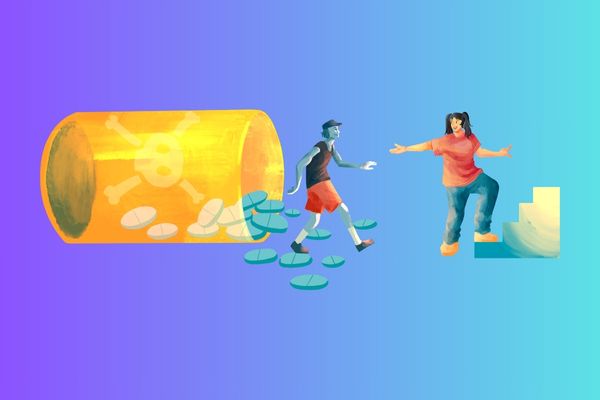File for Issuing Provincial Voluntary Drug Rehabilitation Operation License: Requirements and Procedures
What are the required documents for issuing a provincial-level voluntary drug rehabilitation operation license?
In accordance with the provisions in Subsection 1, Section A of the administrative procedures issued together with Decision 470/QD-LDTBXH in 2022, the required documents for issuing a provincial-level voluntary drug rehabilitation operation license include:
- An application for a voluntary drug rehabilitation operation license from the voluntary drug rehabilitation institution.
- One copy of the decision establishing, allowing the establishment, or the business registration certificate.
- A document from the Chairman of the District-level People's Committee approving the placement of the voluntary drug rehabilitation institution's office.
- Documentation proving the satisfaction of the physical conditions and equipment requirements.
- One original list of staff, accompanied by copies of diplomas and certificates; one brief biography of the head or legal representative; one copy of a document verifying training in drug treatment or rehabilitation, or a document verifying work experience at a drug rehabilitation institution of the head or legal representative.
- One financial plan for maintaining the voluntary drug rehabilitation activities of the institution.

What are the required documents for issuing a provincial-level voluntary drug rehabilitation operation license?
What are the requirements and conditions for the procedure of issuing a provincial-level voluntary drug rehabilitation operation license?
Based on the provisions in Subsection 1, Section A of the administrative procedures issued together with Decision 470/QD-LDTBXH in 2022, the requirements and conditions for the procedure of issuing a provincial-level voluntary drug rehabilitation operation license are as follows:
A voluntary drug rehabilitation institution must:
- Be established, organized, and operated according to legal regulations.
- Have facilities that meet the drug rehabilitation activity requirements:
+ The institution must be located at a place convenient for transportation and access to medical facilities, have electricity and clean water for living; have boundary walls and a nameplate.
+ Facilities must have:++ Natural land area per subject: 80 m^2/subject in urban areas, 100 m^2/subject in rural areas, 120 m^2/subject in mountainous areas;
++ Average living room area: 6 m^2/subject; for subjects requiring 24/24-hour care, the average living room area is 8 m^2/subject.- Meet other professional standards:
+ Construction works and equipment must ensure accessibility and safety for drug addicts who are disabled and for those aged 12 to under 18; comply with environmental requirements, fire prevention and fighting according to legal regulations;
+ The institution must ensure health, hygiene, clothing, and nutrition standards for addicts; provide access to culture, sports, and entertainment appropriate to Vietnamese traditions, customs, and the age and characteristics of the subjects.
+ Separate areas or rooms must be arranged for subjects aged 12 to under 18, those with infectious diseases in group A, group B as prescribed by the Law on Prevention and Control of Infectious Diseases, women; those with discrepancies between physical and documented gender must be managed in separate rooms according to the gender manifested physically.
In case of renting facilities, the rental period must be at least 2 years from the time of submitting the application for the operation license.
- Have minimum equipment and means according to the list prescribed in Appendix I attached to Decree 116/2021/ND-CP.
- Staff working at the drug rehabilitation institution must meet the conditions and standards prescribed in Clause 1, Article 8 of Decree 116/2021/ND-CP.
The head or legal representative of the drug rehabilitation institution must have at least a university degree, be trained in drug treatment or rehabilitation, or have worked in drug rehabilitation at a drug rehabilitation institution for at least 2 years.
- Have a financial plan to ensure the maintenance of the institution's drug rehabilitation activities.
How is the procedure for issuing a provincial-level voluntary drug rehabilitation operation license conducted?
Based on the provisions in Subsection 1, Section A of the administrative procedures issued together with Decision 470/QD-LDTBXH in 2022, the procedure for issuing a provincial-level voluntary drug rehabilitation operation license is conducted as follows:
Step 1: Submit the application
The voluntary drug rehabilitation institution sends directly, by post, or electronically one set of documents as prescribed in Clause 1, Article 11 of Decree 116/2021/ND-CP to the Department of Labor, Invalids, and Social Affairs.
In the case of electronic submission, the institution is responsible for keeping the original documents and bearing legal liability for the accuracy and truthfulness of the documents.
Step 2: Receive the application
The Department of Labor, Invalids, and Social Affairs is responsible for receiving the application during working hours. If the application is incomplete or invalid, they must immediately issue a guidance slip for supplementing the application to the applicant.
Step 3: Conduct appraisal
The Director of the Department of Labor, Invalids, and Social Affairs is responsible for organizing the appraisal of the application and assessing the licensing conditions as prescribed in Article 9, Clause 1, Article 11 of Decree 116/2021/ND-CP.
Step 4: Decide on granting the license/ not granting the license
Within 15 working days from the date of receiving a valid application, the Director of the Department of Labor, Invalids, and Social Affairs must decide on granting the drug rehabilitation operation license. If the license is not granted, they must reply in writing to the applicant, stating the reasons.
LawNet